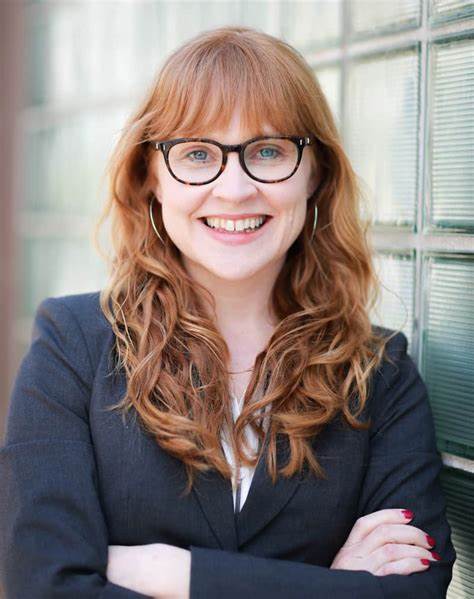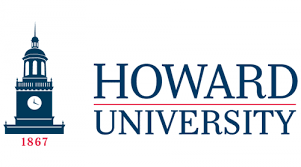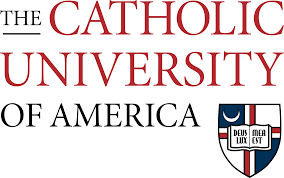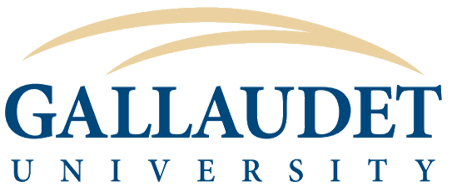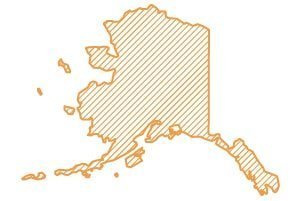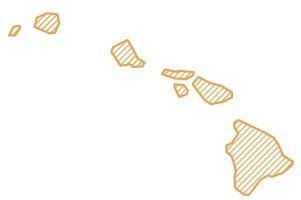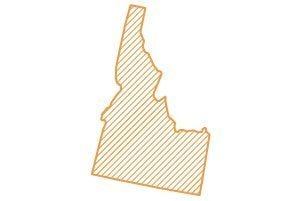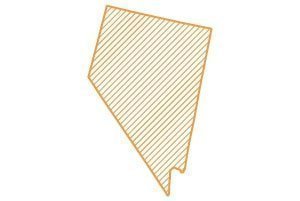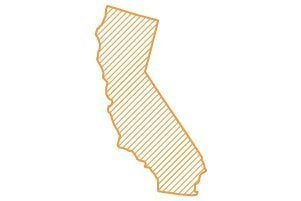Washington, D.C., our nation’s capital, is a highly political district with a bustling community and thriving economy. Working in DC provides social workers with unparalleled opportunities to interact with policymakers at the national level. Many non-profit agencies work directly in policy-making and advocacy.
- Arizona State University - Online offers the respected CSWE-accredited Master of Social Work online. ASU Online knows today’s MSW students need remote learning options with no compromises. That’s why you’ll find the same professors, field work requirements, and internship placement assistance that ASU provides on campus. Visit School's Website
- Grand Canyon University offers Online Social Work Degrees. Choose between Bachelors of Social Work, Master of Social Work, Master of Social Work (Advanced Standing). Visit School's Website
- edX partners with world-class universities to bring you online MSW programs that combine clinical training and flexibility. Choose from the following universities: University of Denver, Howard University, Simmons University and Syracuse University.
- Walden University offers Master of Social Work (MSW) - Advanced Standing (requires BSW). Visit School's Website
- University of Kentucky offers its Online Master of Social Work: Advanced Standing Program available. MSW program includes options for an advanced-standing program (30 credits) and a 60-credit regular standing program. Visit School's Website
- George Mason University - Throughout Mason’s online MSW program, you’ll build knowledge for evidence-based practice in classes led by practicing social workers. Visit School's Website
Social work jobs in Washington, D.C., are expected to increase between 2022 and 2023. Based on data collected by Projections Central, mental health and substance abuse social work jobs are projected to grow by 12.2%, child, family, and school social work jobs by 9.7%, and all other social work jobs by 5.6% (1).
A shortage of social workers, particularly within schools and homelessness services, has existed in DC for several years. To help address this, Howard University now has a program that places social work students in DC public schools in hopes they will work there full-time after graduating (2). In addition, the DC council passed a bill in 2023 to provide free tuition to students at the University of the District of Columbia’s MSW program, provided they commit to working in DC for at least 2 years after obtaining their degree (3).
Issues Facing Social Workers in DC
The median household income in Washington, DC is $106,287, significantly higher than the national average of $78,538. However, the percentage of individuals living in poverty is also higher than the nationwide average: 14% compared to 11.1% (4). In addition, racial disparities in poverty data are stark, with 1 in 3 Black children living in poverty compared to 1 in 100 white children (5).
Washington, D.C., is also very densely populated and has one of the most expensive housing markets, with the average home costing $575,759 (6). When you couple this with the impact of gentrification and a shortage of affordable housing, many families are left without adequate and safe housing (7). The housing crisis is especially felt by Black and brown residents of the city, with 87% of the houseless population being African-American despite African-Americans only making up 47% of the city’s total population (8). Some cite a shortage of social workers, rather than a lack of funding, as one of the key reasons for the high number of unhoused individuals (9). The existing programs are unable to meet demand because of limited staffing resources.
DC Social Work Schools and Master’s in Social Work (MSW) Programs
Do you want to go to school in the District of Columbia? While there are only four universities in DC with MSW programs, three of them are ranked in the top 100 best social work schools according to the U.S. News and World Report. Howard University is ranked 12th, Catholic University of America is ranked 60th, and Gallaudet University is ranked 83rd (10). You can be confident that any accredited program you choose in our nation’s capital will provide you with a high-quality social work education.
Getting your MSW degree can be expensive, particularly in DC, but there are loan forgiveness programs for social workers that may help you recoup the costs of graduate school. One option is to apply for the National Health Service Corps loan forgiveness program (NHSC). You will need to work in a “Health Professional Shortage Area” (HPSA), but if you do, you may qualify for as much as $20,000 in loan forgiveness per year, for up to two years. You might also be eligible for the DC Health Professional Loan Repayment Program, which offers support to those working full-time at one of their Service Obligation Sites.
DC MSW Programs
CSWE-Accredited Programs in DC
Three of the MSW programs in Washington, D.C., including their online programs, are accredited by the Council on Social Work Education (CSWE). The only program not yet accredited is the newly established MSW program at the University of the District of Columbia. It is critical to attend an accredited MSW program if you plan to seek social work licensure after graduation.
Advanced Standing Programs
If you already hold your Bachelor’s in Social Work degree, you are eligible to apply for one of the advanced standing programs in any of the three, accredited MSW programs in DC. These programs allow you to skip the foundational courses and move straight into various focus areas, which enables you to finish your MSW education within one year if you are enrolled full-time.
Howard University
- Washington, D.C.
- 1-2 years
- Online + Campus
Location: Washington, D.C.
Modality: Online, On-campus
Credits required:
- Traditional Program: 60
- Advanced Standing: 45
Program Length:
- Traditional Program: 2 years
- Advanced Standing: 1 year
Cost:
- $34,876/year + fees (On-campus)
- $21,852/year + fees (Online)
Program Overview:
Howard University, a well-established HBCU (Historically Black Colleges and Universities), has an MSW program accredited since 1940 and ranked 12th in the nation. Students can enroll full- or part-time and online or on-campus. The program prepares students for advanced generalist social work in either direct practice or community, administration, and policy (CAP) practice. Once students choose their specialization, they can further focus on one of six fields: family and child welfare services, criminal justice, mental health, health, social gerontology, or displaced populations. Howard University also offers several dual degree programs, in which you can combine an MSW degree with a Bachelor of Arts in Human Development, Master of Business Administration (MBA), Master of Divinity (MDiv), or Master of Public Health (MPH).
Catholic University of America
- Washington, D.C.
- 1-2 years
- Online + Campus
Location: Washington, D.C.
Modality: Online, On-campus
Credits required:
- Traditional Program: 60
- Advanced Standing: 30
Program Length:
- Traditional Program: 2 years
- Advanced Standing: 1 year
Cost: $1,200/credit hour + fees
Program Overview:
Catholic University of America’s MSW program offers full- or part-time enrollment options and online or on-campus tracks. The program trains social work students in two possible concentrations, clinical and community, administration, and policy practice. The clinical concentration includes elective courses in international development, community organization, social policy, and social service management. Within the macro practice concentration, students can deepen their skills in policy analysis, community organizing, international social development, social planning, nonprofit management, ethics, and research.
Gallaudet University
- Washington, D.C.
- 1-2 years
- Online
Location: Washington, D.C.
Modality: Online
Credits required:
- Traditional Program: 61
- Advanced Standing: 30
Program Length:
- Traditional Program: 2 years
- Advanced Standing: 1 year
Cost: $10,071/semester + fees
Program Overview:
Gallaudet University offers a unique online MSW program designed to prepare students for advanced social work practice with deaf and hard-of-hearing populations. The program seeks to graduate students who will improve service delivery to deaf and hard-of-hearing communities as well as combat long-standing injustices faced by this population. Students must achieve an ASLPI (American Sign Language Proficiency Interview) rating of 2+ after the first year of study in order to move forward. All MSW courses are taught by sign-fluent professors.
University of the District of Columbia
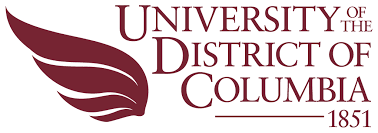
Program Overview:
The University of the District of Columbia has recently developed an MSW program, but it is not yet listed as accredited on the CSWE website. Contact the university directly to find out more information.
FAQs for Aspiring DC Social Workers
1. What Can I Do With an MSW Degree in DC?
As mentioned earlier, there is a shortage of social workers within homelessness services. If you are interested in direct service with the unhoused population, there are many agencies in DC engaged in this work, including Friendship Place, Wanda Alston Foundation, and the DC Coalition for the Homeless. There is also a shortage of school social workers, so if you find yourself drawn to this field, DC would be a great place to begin your career. Child, family, and school social workers in DC make an average yearly salary of $76,330 (11).
On the other hand, you might be more passionate about macro practice, affecting policy or practice change within our various institutions. In this case, DC is an excellent option as you will find many organizations engaged in changing federal policies impacting a wide range of social issues. This includes organizations such as the Acacia Center for Justice, the Children’s Defense Fund (CDF), and the Human Rights Campaign.
2. Which DC School of Social Work has the best MSW program?
According to the U.S. World and News Report, Howard University’s MSW program has the highest national ranking (12th) when compared to other MSW programs in Washington, D.C. Howard University grounds its MSW program in the Black Perspective, which “reaffirms the richness, productivity, and vigor of the lives of African Americans, Africans, and people of color and marginalized and oppressed people in other parts of the world.” You can be sure to receive a high-quality education at Howard University that will set you up well for your social work career.
3. How much does an MSW in DC cost?
The social work programs are generally pricey in DC, ranging from $40,284 to $72,000 if enrolled full-time in a traditional program. Tuition cost is much lower if you already have your BSW and enroll in an advanced standing program with tuition spanning from $20,142 to $36,000. The total price of your MSW program will include more than tuition, however. You typically need to account for program-specific fees, housing, food, books, and health insurance. Many universities offer grants or scholarships to offset costs, so be sure to contact the university directly to talk through your financial options.
4. How much does a social worker in DC make?
The average salary for a social worker in DC is $75,296. For those with an MSW degree, the mean yearly wage is $82,617. Licensed clinical social workers and geriatric social workers, however, make a higher average income of over $90,000 (12).
5. What is the ROI of getting an MSW in DC?
One factor to consider when determining the Return on Investment (ROI) of getting an MSW in DC is the quality of your education. All of the accredited MSW programs in DC are ranked in the top 100 social work schools, with Howard University ranked 12th. While your tuition might be above $40,000, you know your education will be high-quality and make you competitive in the field of social work. However, the average salary for a social worker with their MSW degree in DC is $82,617, while the cost of living is $92,037 (13). Therefore, you might want to consider living somewhere less expensive outside the city and commuting to work.
6. How long does it take to become a social worker in DC?
A full-time, traditional program in any of the MSW programs in DC requires two years to complete, and the advanced standing programs take 1 year. If you are working simultaneously and therefore enroll part-time, the program length of time can extend by 1 to 3 years.
Licensure and Professional Development Resources
Once you have graduated from an MSW program, you will most likely want to obtain a social work license. There are three possible social work licenses in Washington, D.C., including the Licensed Graduate Social Worker (LGSW), Licensed Independent Social Worker (LISW), or Licensed Clinical Social Worker (LICSW). All licenses require passing a Master’s Level ASWB exam.
- Social Work License Requirements in Washington, D.C.
- National Association of Social Workers, Washington, D.C. Chapter
- Washington, D.C. Department of Health (Licensure)
References
- https://projectionscentral.org/longterm
- https://www.thesentinel.com/communities/schools-face-a-shortage-of-social-workers-but-howard-university-has-a-plan-that-helps/article_669de3ae-1a1e-4cbb-b776-68dc3f4456f6.html
- https://thewash.org/2023/11/28/udcs-new-free-masters-in-social-work-a-response-to-d-c-s-social-worker-shortage/
- https://www.census.gov/quickfacts/fact/table/DC,US/PST045224
- https://www.dcfpi.org/all/dc-contends-with-extreme-child-poverty-disparities-by-race-place-and-age/
- https://listwithclever.com/cost-to-buy-house-washington-dc/
- https://www.dcfpi.org/issue-areas/affordable-housing/?_sft_issue=featured
- https://www.thecommunityfoundation.org/understanding-homelessness
- https://streetsensemedia.org/article/d-c-has-everything-it-needs-to-fight-homelessness-except-the-people/
- https://www.usnews.com/best-graduate-schools/top-health-schools/social-work-rankings?_sort=rank-asc
- https://www.bls.gov/oes/2023/may/oes_dc.htm
- https://www1.salary.com/DC/Washington/Social-Worker-Salary.html
- https://www.sofi.com/cost-of-living-in-washington-dc/
